Changing our mindset for a better future - Global Footprint Network has announced the date of Earth Overshoot Day 2025
The result is alarming: the date on which humanity will have used up all renewable resources for the year has moved forward by a full eight days compared to the previous year. In 2025, Earth Overshoot Day falls on 24 July. Mathis Wackernagel, Founder of Global Footprint Network, and Sybilla Merian, Head of Sustainability at Interzero, discuss how we can push back Earth Overshoot Day and how the circular economy can benefit businesses.
Sybilla Merian: As humans, we consume too many resources, and this is endangering our entire basis for long-term survival. Can we still make the switch to sustainability, and what do we need to do to make this a reality?
Mathis Wackernagel: First and foremost, we need a whole new mindset. Right now, sustainability is seen as a noble gesture when, in fact, it is an absolute necessity. We underappreciate that my sustainability actions are not just crucial for humanity, but essential for my own business or city if we want to continue to operate. Our current way of operating - one financed by ecological depletion - creates a shortage of resources, exacerbates climate change. Such overshoot cannot last. It will either end by design or by disaster. That's the choice.
Sybilla Merian: What does this mean for businesses?
Mathis Wackernagel: The guiding question is: what will be valuable? What will be operational in the predictable future of climate change and resource constraints? Products, services and companies that, as they expand, reduce global overshoot will be particularly valuable. Take, for example: circular companies dedicated to reusing and recycling materials: they reduce global overshoot even more as they grow. Anyone who reduces the pressure on the planet as they expand will be needed more; they will therefore have a competitive advantage.
Sybilla Merian: Many of our customers are asking themselves how they can satisfy their demand for resources while simultaneously easing the burden on our environment. This is virtually impossible without a strong circular economy that keeps resources in the loop for as long as possible. While Interzero's work as a circular solutions provider is fundamentally needed in a sustainable future, we also face the ongoing challenge of effectively measuring our specific contribution to resource conservation. That is why we work with research institutes to create transparency and clarity in this area - including Global Footprint Network and its ecological footprint metric.
Mathis Wackernagel: This metric allows us to analyze how much a company is reducing (or adding to) global ecological overshoot per million euros of added value produced. The global economy requires 2 square meters of biologically productive space to generate one dollar value add per year. In the case of Interzero, we estimated, based on data Interzero provided, that for every dollar value generated per year global overshoot got reduced 32 square meters, 15 times more than world average, and in the good direction. Such insights are helping businesses to make the right investment decisions. It serves a similar purpose to the instruments on a car's dashboard: how fast am I going, how much fuel is in the tank, and how far can I get with it? Many companies view sustainability data as little more than a compliance task or regulatory burden and treat it far too defensively. Yet this is a strategic issue: how far can I get in my "car" when faced with ecological overshoot and a shortage of resources?
Sybilla Merian: This was an eye-opener for us, too. By calculating Interzero's effect on Earth Overshoot Day, we are able to demonstrate our impact in one succinct figure for the first time. Based on the results you mentioned, it shows that the services of our company lead to Earth Overshoot Day being pushed back 7 minutes and 12 seconds. This means, the more we do, the more we protect our planet. This gives us a starting point and incentive to work with our partners, customers and employees to make a bigger contribution each year.
Mathis Wackernagel: Collaborating with companies like Interzero is exciting for us. By working together, we can show that the impact of a company is measurable. We can also demonstrate what is possible – and help businesses see that pushing for sustainability is becoming a value generator for companies. Unfortunately, plenty of people still have a blind spot in this area and are convinced that sustainability always means cost. With that in mind, it's clear that our society needs two ingredients to be effective and sustainable: First of all, we need resources. Businesses, cities and countries – in fact, everything that physically exists – cannot function without resources. Secondly, we need trust. We can only work together and shape the future effectively if we have trust in each other.
Sybilla Merian: I totally agree. We can change so much and achieve great things as a collective, with good partners pursuing shared goals. With the Let’s #MoveTheDate campaign, we are deliberately aiming for a circular economy movement with a positive and dynamic spirit. We are energizing, empowering and supporting our customers in their efforts to implement circular strategies. Open and ongoing dialog is an essential part of this process. There is so much to learn. Whether via events such as Future Resources or in this magazine, we want to create a platform for exchanging successful ideas and innovations for the circular economy. At this point, I would like to take a moment to thank you, Mathis, for your involvement in these efforts.
Mathis Wackernagel: With pleasure! I have been dealing with the issue of overshoot and resource security for many years now, and what I have learnt is that we need to find approaches that generate motivation rather than fear of scarcity. We want to help by showing that building resource security creates value. Nobody would want to throw money out of window, so why don't we think about resources the same way? If we can better understand the concept of ecological overshoot, we can position ourselves more effectively and successfully as companies, cities and countries. That’s good news for us – and for our world.
7:12 minutes - Every minute counts
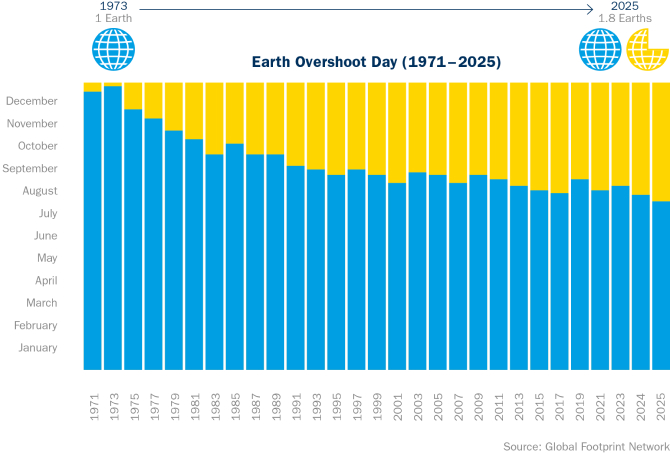
Earth Overshoot Day is a stark reminder of the fact that humanity is living beyond its means. Calculations show that by 24 July 2025, all the natural resources the planet can regenerate in a single year will have been used up. Recycling makes a measurable contribution to relieving the pressure on our planet – and without the work done by Interzero, Earth Overshoot Day in 2024 would have occurred 7 minutes and 12 seconds earlier.*
* Calculation by the Global Footprint Network based on the Fraunhofer study ‘resources SAVED by recycling’.
Preview: This article is from the new Interzero sustainability magazine, which will be published at the end of June.

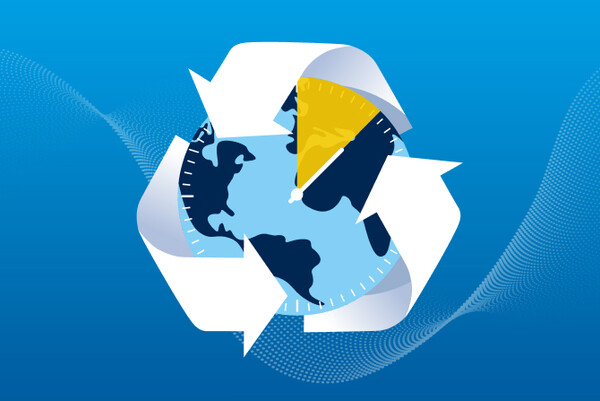
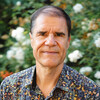

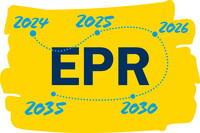
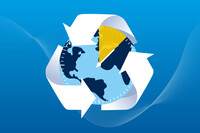
![[Translate to English - Englisch:] [Translate to English - Englisch:]](/fileadmin/_processed_/1/4/csm_230606-AGA-Tridi-Indonesia-PET-recycling_e3dcd2ad90.jpg)